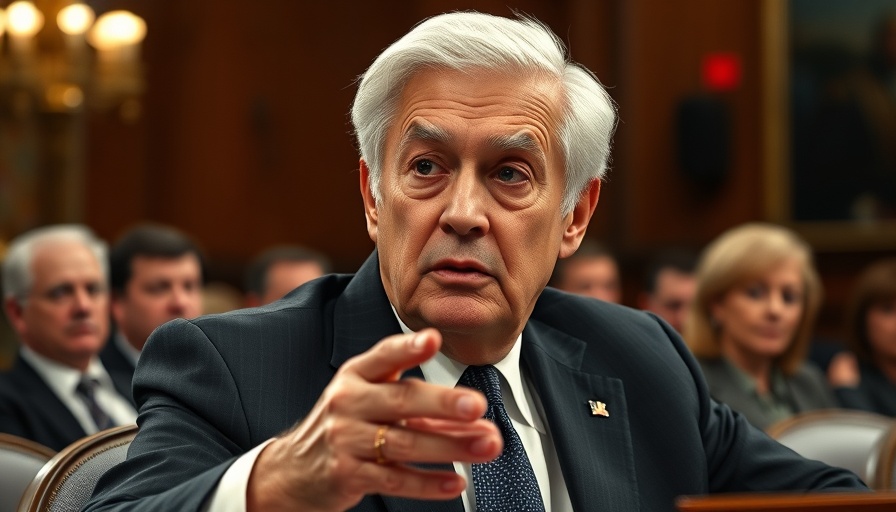
RFK Jr. Faces Struggles in First Senate Hearing as Health Secretary
In his first Senate hearing as Secretary of Health and Human Services, Robert F. Kennedy Jr. found himself at the center of bipartisan scrutiny, with lawmakers from both sides of the aisle expressing deep concern about the drastic staff cuts and proposed restructuring at the department. As the urgency of the situation mounted, Senator Susan Collins of Maine, who had voted to confirm Kennedy only a few months earlier, raised alarms over efforts to preserve critical Alzheimer’s research programs linked to her legislation.
A Troubling Response to Key Questions
During the hearing, Collins pressed Kennedy on how the CDC could effectively implement programs supporting Alzheimer’s research when staff responsible for such initiatives had been significantly reduced or dismissed. Kennedy’s reply, revealing a surprising lack of awareness about many of the programs under his leadership, exemplified the growing worry regarding his capability to oversee substantial changes. With his position contingent upon a reorganization currently entangled in legal challenges, Kennedy struggled to provide viable solutions during exchanges with the Senate panel.
The Ripple Effects of Department Restructuring
Concerns extended beyond Alzheimer’s research, with senators questioning the implications of staff cuts on various health initiatives—from lead poisoning prevention to support for 9/11 victims. Kennedy’s acknowledgment of making mistakes surfaced only sporadically, such as when pressed regarding layoffs in critical victim support programs. Still, he characterized the reorganization as a move towards efficiency, masking the anxiety surrounding the departure of tens of thousands of staff and the consequent impact on public health services.
Understanding the Broader Context of Health Department Cuts
The staggering 20% reduction in the HHS workforce marks an unprecedented shift in federal health policy, spurred by Kennedy’s alignment with the aggressive government cost-cutting agenda supported by President Trump and figures like Elon Musk. The ambition is clear: Kennedy aims to dismantle what he perceives as an ineffective health bureaucracy. However, questions loom large regarding the sustainability of this approach and its repercussions on crucial health programs and research funding.
Implications Under the Surface: Public Health on the Line?
As Kennedy continues to implement sweeping changes, many stakeholders remain anxious about the ramifications for federal health initiatives. Experts warn that dismantling key structures without a clear, actionable plan could lead to long-term setbacks, delaying advancements in vital health research and weakening programs designed to safeguard vulnerable populations. The future of the public health system hangs in a precarious balance.
Public and Politicians React: A Mixed Bag of Opinions
The hearing has sparked mixed reactions not only among legislators but also within healthcare communities across the nation. Some praise Kennedy’s intentions to streamline operations and eliminate redundancies, viewing it as a necessary step toward modernization. Others, however, voice concerns over potential chaos in the face of urgent needs that require comprehensive support rather than cuts. The question remains: will Kennedy’s overhaul yield the targeted efficiencies, or will it undermine decades of public health advancements?
Looking Ahead: What’s Next for Kennedy and HHS?
As the fallout from this Senate hearing continues to develop, all eyes will be on how Kennedy navigates the backlash and implements his restructuring efforts. Both the healthcare community and the American public are watchful, aware that the decisions in the coming months will shape the landscape of federal health initiatives for years to come. The pressure is mounting for Kennedy to demonstrate effective leadership amid uncertainties that threaten not only programs but public wellbeing.
In Conclusion: The Health of Our Nation at Stake
This hearing has underscored not just the challenges RFK Jr. faces in his role but also the pivotal moment in U.S. public health policy. Stakeholders need to engage actively, advocating for the preservation of essential programs while ensuring transparency during this tumultuous transition. As we watch closely, it’s vital for every citizen to recognize the implications of these decisions for our collective future.
 Add Row
Add Row  Add
Add 




Write A Comment